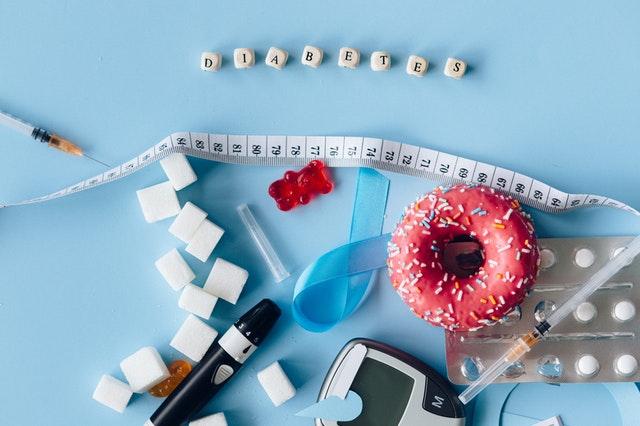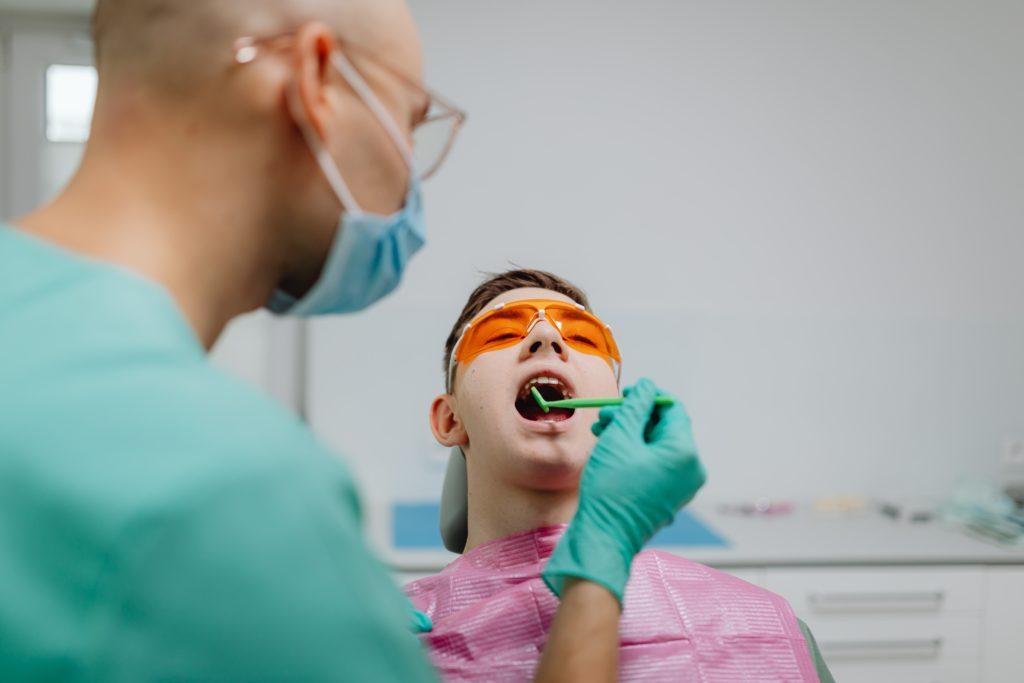Dental Health and Diabetes
In the United States, 34.2 million people are living with diabetes with around 1.7 million diagnosed per year (National Diabetes Statistics Report, 2020). Type 2 diabetes is a chronic condition that affects the processing and regulation of blood sugar in the body. Blood glucose is the biggest source of energy that fuels the body. Insulin is a hormone from the pancreas that helps turn the sugar you eat into energy for the cells to use.
Table of Contents
Untreated Diabetes Toll

Untreated diabetes weakens white blood cells. This is the body’s main defense against bacterial infections that can occur in the mouth. Signs of uncontrolled diabetes include:
- Blurred vision, Frequent headaches
- Increased thirst or hunger, Weight loss
- Fatigue
- Slow-healing cuts and sores
- Frequent Urination
Dental Health and diabetes aren’t the only bodily correlation. Complications of untreated diabetes include:
- Heart disease
- Kidney failure
- Permanent vision loss
- Nerve damage
Connection of Dental Health and Diabetes
Does diabetes affect dental health?
Having good oral hygiene habits can help maintain diabetes stability. Having stable blood sugar levels can help prevent gum disease. Diabetes and periodontal disease are chronic, making it important to have overall healthy habits. Dental health and diabetes stability depend on each other in several ways.
- Inflammatory Response: Having unstable diabetes can trigger inflammation in the mouth. Bacteria and inflammation can damage the supporting structures resulting in bone loss and infected gum tissue.
- Improper Wound Healing: Diabetes makes it harder for the body to fight bacteria. This can result in gum disease. Left untreated, gum disease will lead to bone loss that supports the teeth.
- Dry Mouth (Xerostomia): A common symptom of diabetes is the lack of saliva. Saliva plays an important role in neutralizing bacteria in the mouth. It also helps clean out food particles that bacteria feed off of to produce acid.
- Thrush: Diabetics are more likely to develop thrush, a fungal infection caused by the yeast Candida Albicans. This can be quite painful on the tongue.
Caring for Your Smile with Diabetes
Preventative care can help maintain dental health and diabetes. Combining stable blood sugar levels and good oral hygiene is the best protection against gum disease and diabetic incidents. For more oral hygiene instructions, check out Your Guide to a Healthy Smile.
- Homecare: Use an electric toothbrush 2 times a day for 2 minutes and floss daily to efficiently remove plaque and bacteria. Don’t forget to brush your tongue each time with a wet toothbrush.
- Dental Visits: Schedule routine dental cleanings at least every 6 months. Your dental professional may recommend increasing the frequency to every 3-4 months based on your periodontal status.
- Quitting Smoking: Diabetics are 20 times more likely to develop oral health complications like thrush and periodontal disease. Smoking also impairs blood flow to the gum tissues. This can affect healing and increase gum disease. Ask your dental professional for help in smoking cessation.
Healthy Eating for Diabetics
Diabetics benefit from a diet that includes healthy foods in moderate amounts and sticking to regular mealtimes. This diet is also beneficial to a healthy mouth lowering your cavities risk. When choosing your meals you should stick to:
- Healthy Carbohydrates: Starches (complex carbohydrates) and sugars (simple carbohydrates) breaks down into blood glucose. Cut down on foods low in fiber like high-processed cereals, white bread, and white rice. Choose whole-grain brown rice, whole oats, fruit, vegetables, legumes, nuts, and lentils.
- Limit Sodium Intake: Salt intake can increase your risk of high blood pressure, heart disease, and stroke. It can also lead to dry mouth, a common side effect of diabetics. Saliva flow is important to neutralize the harmful bacteria that cause gum disease and cavities.
- Cut Down on Added Sugar: Sugar interferes with controlling blood sugar levels. In today’s diet, added sugar is everywhere and marketed under 56 different ingredient names. Sugar consumption also increases your risk of cavities.
- Snack Smart and Eat More Meals: Work with a dietician to help measure food portions and meal timings. This can optimize balancing your blood glucose levels. Snacking often with unhealthy food increases your risk for cavities by feeding harmful bacteria more frequently. Eat more balanced meals and choose healthy snacks when needed.
Check out our Dental Nutrition Guide for more tips.
Linking your Medical And Dental Professionals

Your dental team can be an important tool in stabilizing your dental health and diabetes. It’s important to keep both your medical and dental home in the know.
- Share your HgA1C level (glycosylated hemoglobin level) with your dental professional at each visit. If you’ve had an episode of low blood sugar, tell your dentist when, how frequently they occur, and when your last dose of insulin.
- Keep your dental team up to date with your medical doctor’s office contact information and current medications they’ve prescribed. Some medications have side effects that can interfere with oral health like a dry mouth (Xerostomia).
- If blood sugar levels are not controlled, consult your doctor before any non-emergency dental procedures. Always let your dental professional know before treatment if your HgA1C levels are not stable. They may want a medical clearance before your appointment.
Frequently Asked Questions
How does diabetes affect dental treatment?
If your blood sugar levels are unstable, your dental professional may want to postpone nonurgent dental treatments. High glucose levels can increase your risk of infection during dental surgery. Unstable diabetes and blood sugar levels can decrease healing efforts by the body.
Does dental work affect blood sugar?
Always update your dental professional with your daily blood sugar levels. Dental cleanings can improve blood sugar levels and diabetes stabilization. This is especially true after scaling and root planing, or deep cleanings.
Why is dental health important for diabetes?
Bleeding gums is an infection in the gum tissue. Cavities are an infection in the tooth. High blood sugar can weaken white blood cells which are how your body fights infections. Treating gum disease and infections in your can stabilize your diabetes and help lower blood sugar over time.
Take Home Smile Store
Visit our Take Home Smile store for educational brochures and other fun printables to help with oral hygiene. All products can be customized to fit your dental needs.



